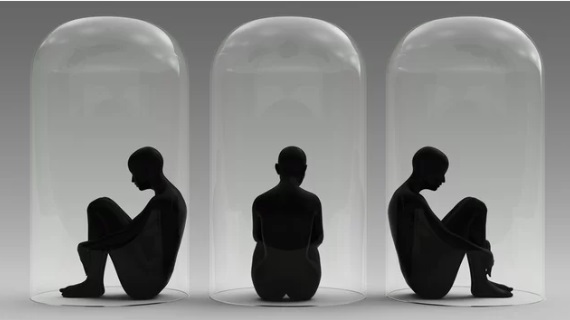Introduction – How Stress Kills The Immunity
– Stress is taking pressure, be it physically or mentally. Physical stress is the physical pressure exerted on the body during illness, sprain, injury, etc., and by mental stress, I mean it is the mental pressure and strain that one goes through.
– Here, we will discuss mental stress (stress).
How is mental stress or stress induced in our body?
1. Stress is an emotion handled by the hormones produced by the endocrine glands in our body.
2. When a person is stressed, they are stressed in the head; that is, their brain is the first organ that reacts to it.
3. Precisely, the hypothalamus in the brain reacts by signaling its nearest endocrine gland, which is the pituitary gland, to release hormones.
4. These hormones further travel down to the adrenal gland and signal the adrenal gland to release a hormone called CORTISOL.
5. Cortisol is the stress hormone.
6. The amount of cortisol released depends on the amount of stress.
This tells us that stress can be of two types: GOOD STRESS and BAD STRESS.
Good Stress
In Good stress, an optimum amount of cortisol that is required by the body is released.
This cortisol helps the body in the following ways —-
(a) It creates required mental pressure in a person, which helps them to take things seriously and work towards it. This is helpful for their overall growth in terms of education, job, etc.
(b) It makes them alert and active.
(c) When a pathogen attacks our body, it induces stress in the immune system; that is, it induces cortisol production.
The right amount of cortisol produced at this stage will further activate the immune system to fight the pathogen.
Like this, the immune system will attack and kill the pathogen by using its immune cells or WBCs – lymphocytes, monocytes, neutrophils, eosinophils, basophils, antibodies – IgG, IgA, IgM, IgE, IgD, complement system, natural killer cells – histocompatibility complex, etc
Bad Stress
In Bad Stress, an excess amount of cortisol is released, which is more than the body’s requirement, so much so that cortisol will get toxic to the body.
This happens when people get extremely stressed, especially during exams, excessive workloads, etc.
This excess cortisol takes a toll on one’s mental as well as physical health.
Effect on mental health
– It gives rise to chronic stress, where a person can get stressed multiple times in a day or so.
– It reduces their confidence and willpower.
– They lack the motivation to do their day-to-day activities.
– It puts them in DEPRESSION, the symptoms of which are :
Oversleeping

Excessive crying

Mood swings

Self-isolation

Lack of self-love

Stress eating

Restlessness

Loss of appetite

Hormonal imbalance

Anxiety attacks

Effect on physical health, specifically, “The Immune System.”

Stress kills our body’s immunity in the following ways:
- A large amount of cortisol that is, too much stress, will decrease the immune system activity, because of which the body surrenders itself to the pathogens instead of fighting them back like in the case of good stress.
- Here, the overwhelming stress will shut down the immune system mechanisms like- immune cell action, complement system, antibodies, etc. Therefore, making the body sensitive to various kinds of diseases and allergies.
In this way, stress kills our body’s immunity.
Proof:-
- A group of doctors conducted a survey where they extracted blood from students on a normal day and the day of their exam.
- When examined, they discovered that the blood taken on a normal day had optimum levels of WBCs (immune cells).
- Whereas the blood taken on the day of their exam had less number of WBCs.
- This proved that excess or unwanted stress could decrease the levels of WBCs and, in turn, kill the body’s immunity.
Symptoms of Decrease in Immunity Because of Stress-
Headache
Muscle pain
Chest pain
Choking
Chronic cold and flu
Fever
Indigestion
Loss of appetite
Sleeplessness or insomnia
Delayed or no healing of wounds – due to lack of immune cells like mast cells, neutrophils
Hypersensitivity – due to lack of eosinophils
Lack of barrier immunity in terms of dendritic cells and cells of Langerhans
Prolonged illness
Besides the immune system, stress also affects our muscular, digestive, nervous, reproductive, respiratory, and so on.
Treatment
The various steps to get rid of stress are:-
(1) Meditation and deep breathing –
Take a deep breath from your nose, hold it for 5 seconds, and release. Repeat this for 10-15 minutes.
(2) Exercise –
Any physical exercise like stretching, jogging, yoga, dancing, Zumba, etc, for at least 30 minutes every day will help.
(3) Getting into the habit of reading good books on positivity and mindfulness.
(4) Watching inspirational videos.
(5) Listening to soothing music.
(6) Stop thinking about the result and work to progress.
(7) Develop the habit of self-love.
(8) Communicate with friends and family.
(9) Involvement in social activities.
(10) Travel and explore nature.
(11) Counseling is always a good option for somebody who is facing extreme stress issues like anxiety and depression.
(12) Acceptance towards yourself and towards life.
(13) Prioritize your important tasks and complete them.
Thank You
MEDICAL ADVICE DISCLAIMER:
This blog, including information, content, references, and opinions, is for informational purposes only.
The Author does not provide any medical advice on this platform.
Viewing, accessing, or reading this blog does not establish any doctor-patient relationship.
The information provided in this blog does not replace the services and opinions of a qualified medical professional who examines you and then prescribes medicines.
And if you have any questions of medical nature, please refer to your doctor or qualified medical personnel for evaluation and management at a clinic/hospital near you.
The content provided in this blog represents the Author’s own interpretation of research articles.
